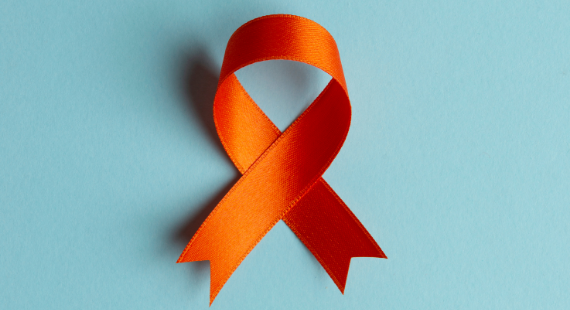
At St Patrick’s Mental Health Services (SPMHS), we look at the importance of understanding self-harm and providing supportive, non-judgemental responses.
What does ‘self-harm’ mean?
Self-harm is an action a person takes to cause themselves deliberate harm or injury, and, most often, is an attempt to cope with feelings of overwhelming emotional pain or distress. Self-harm can take different forms.
Self-harm is not a mental health condition, but may sometimes be linked with other mental health difficulties, such as depression or eating disorders.
Why do people self-harm?
We know from research that certain groups of people are ‘higher-risk’ when it comes to self-harm. For example, research indicates higher rates of self-harm among diverse groups, including adolescent girls, young people who are attracted to the same sex, middle-aged men experiencing economic stressors, and members of the Traveller community.
There may be different underlying reasons related to the distress behind self-harm; for example, struggles with body image or sexual identity, dealing with unemployment, or responses to experiencing trauma or adverse life circumstances. However, what’s often a key commonality is that self-harm is an attempt to cope with a very painful emotional state.
Getting support to deal with self-harm may then involve trying to make sense of the reasons behind it, and, importantly, finding new ways to manage emotions and cope with difficulties.
Psychological support, whether on an individual or group basis, can be extremely helpful, and can include learning new coping strategies and ways to ‘self-regulate’ our emotional state. Evidence-based approaches include dialectical behaviour therapy, compassion focused therapy and forms of cognitive behavioural therapy. If self-harm is linked to another mental health difficulty, such as an eating disorder, depression or substance misuse, it will be necessary to get support and help to work on these underlying mental health needs too.
People do not necessarily self-harm because they are having suicidal thoughts, but there is a strong association nonetheless between suicidal risk and self-harm, and self-harm should always be taken seriously. When self-harm is linked with suicidal thoughts also, seeking urgent support is essential.
Practical strategies that can help a person who is struggling with self-harm include understanding triggers; distracting and delaying; and finding safe alternatives to release energy or feelings. The Health Service Executive (HSE) suggests several of these kinds of strategies.
How do we strengthen responses to self-harm?
SPMHS has organised a number of Self-Harm Awareness Conferences in partnership with Pieta, aiming to provide a platform to raise awareness of self-harm, share learning and increase knowledge. We're reminded that statistics show us that self-harm is not abating, and, in fact, is increasing among certain groups and, especially, young people. It is therefore vitally important that initiatives such as the HSE National Clinical Programme for Presentations of Self-Harm at Emergency Departments continue to be developed, and that accessibility to services is improved overall for people who may be in crisis.
These conferences also give an opportunity to embed greater understanding among health professionals, education providers, parents and others who work directly with or support people who are self-harming. This is not only essential to improve responses, but also to decrease the potential distress a person may experience when they do not feel equipped to deal with the situation they are in.
Increased understanding and supportive, non-judgemental approaches are also key if we are to develop trauma-informed health services. While not all people who self-harm have experienced trauma, it can be a risk factor. Trauma-informed care means an approach to services that is strengths-based; it is “grounded in an understanding of and responsiveness to the impact of trauma, that emphasises physical, psychological, and emotional safety for both providers and survivors, and that creates opportunities for survivors to rebuild a sense of control and empowerment”.
Recognising the meaning and function behind self-harming behaviours, and acknowledging that actions such as self-harm are often an attempt to deal with experiences and feelings that may feel unbearable, is all central to a trauma-informed approach and to supporting meaningful recovery.
How can I get support for self-harm?
Asking for help is a sign of strength. The sooner we get help and support, the better it is for our mental health. If you are worried about self-harm, talking to someone you trust and feel comfortable with is important. Most often, visiting your GP will be the best first step you can take.
There are also lots of helplines available for more help and support, which you’ll find below.
Get help and support
Below, you'll find a number of different helplines and support services if you need help to respond to self-harm and other mental health concerns. If you need urgent help, find more crisis supports here.
You might also find it helpful to view HSE information on self-harm and the Royal College of Psychiatrists self-harm information.
-
Pieta Helpline
If you or a family member are self-harming or having suicidal thoughts, or if you've been bereaved by suicide, you can contact Pieta’s 24-hour helpline for support. Call 1890 130 022 or 1800 247 247.
-
HSE Your Mental Health Infoline
Freephone the Your Mental Health Infoline at any time to find supports and services near you: this is available on 1800 111 888.
-
Samaritans
The Samaritans’ helpline aims to provide emotional support at any time when you may need it. Call 116 123, 24 hours a day.
Self-harm is a serious topic and, as with other mental health topics, it’s important to know if information you are getting online is from a reliable and evidence-based source. Sometimes, harmful information about self-harm and suicide is available online or shared via social media. The HSE has a helpful guide about what to do if you see harmful information online.
Knowing what to do when information online is harmful
Continue to…
Developing strategies to reduce our anxiety over coronavirus
